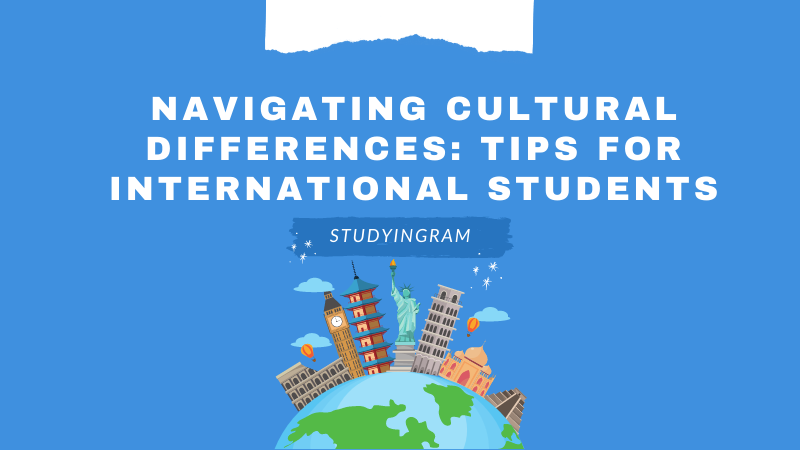
Navigating Cultural Differences may be hard at the beginning but with a good plan it will be easier. Studying abroad is an exciting opportunity for international students to broaden their horizons and immerse themselves in a new culture. However, adapting to a different cultural environment can be challenging. In this blog post, we will discuss essential tips to help international students navigate cultural differences and make the most of their study abroad experience.
Embrace an Open Mindset
One of the keys to successfully navigating cultural differences is to approach the experience with an open mind. Be curious, receptive, and respectful of the local customs and traditions. Embracing a willingness to learn and adapt will make your transition smoother.
Learn the Local Language
While it may not be possible to become fluent in a new language overnight, learning some key phrases and expressions can go a long way. But it shows your genuine interest in the culture and helps you connect with locals on a deeper level. Enroll in language classes or use language-learning apps to enhance your communication skills.
The Pros and Cons of Taking a Gap Year Before College
Understand Cultural Norms
Every culture has its own set of norms and customs. Take the time to understand the local etiquette, social customs, and values. This includes greetings, body language, appropriate dress codes, and table manners. Being aware of these cultural nuances will help you avoid unintentionally offending others.
Build Relationships
To build relationships with locals and fellow international students is crucial for a fulfilling study abroad experience. Join student organizations, clubs, or sports teams to meet new people and engage in cultural exchange. Participating in social activities and attending community events can provide valuable insights into the local culture.
Seek Support
Most universities and colleges have student support services dedicated to international students. Take advantage of these resources, such as international student advisors and cultural orientation programs. They can offer guidance, answer your questions, and provide support during your adjustment period.
Be Patient and Flexible
Adapting to a new culture takes time. There may be moments of frustration or homesickness, but remember that these are normal experiences. Be patient with yourself and others, and embrace the opportunity to grow personally and culturally. Flexibility and adaptability are essential skills to develop during your study abroad journey.
Educate Yourself
Take the initiative to educate yourself about the local history, politics, and current events. Understanding the context in which you are living will help you appreciate the culture more deeply and engage in meaningful conversations with locals. You can take cultural activities. Visit museums, attend cultural performances, and read local literature to gain a comprehensive understanding of your host country.
Conclusion
Studying abroad is an incredible adventure that allows international students to expand their worldview and gain invaluable experiences. By embracing an open mindset, learning about the local culture, building relationships, and seeking support, you can navigate cultural differences successfully. Remember, your study abroad journey is an opportunity for personal growth, cultural exchange, and lifelong memories.
Whether you’re attending lectures, exploring new places, or connecting with people, embracing cultural differences will enrich your study abroad experience in ways you never imagined.